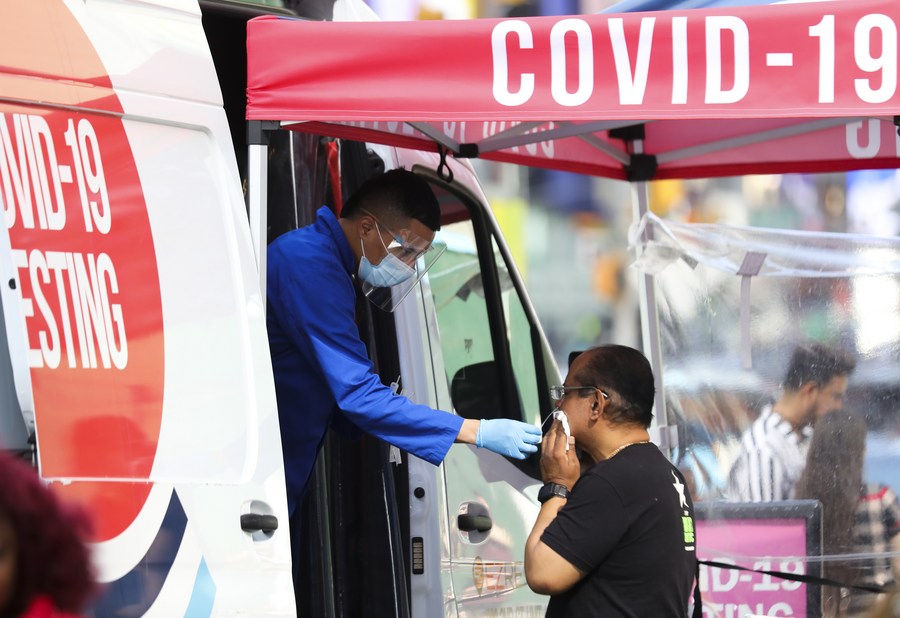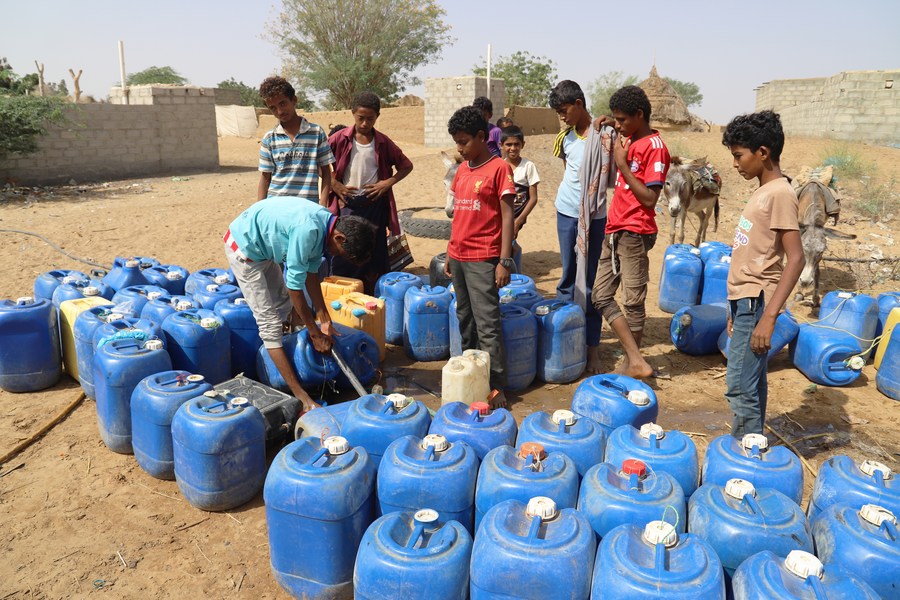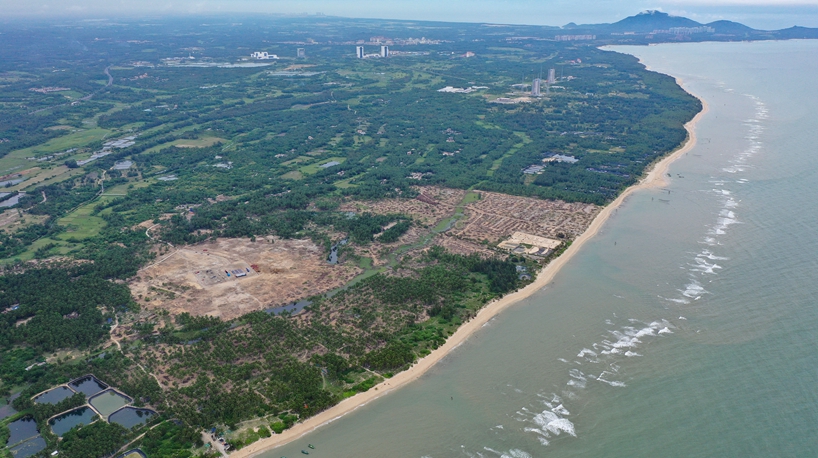
A medical worker collects a swab sample from a man at a COVID-19 testing site on Times Square in New York, the United States, May 17, 2022. (Xinhua/Wang Ying)
Deaths directly and indirectly attributable to the coronavirus reached 15 million by the end of last year, and the pandemic wiped out more than four years of progress in alleviating poverty, severely disrupted essential health services and derailed hard-won progress on SDG 3, according to the report.
UNITED NATIONS, July 7 (Xinhua) -- A new UN report released Thursday warns that intersecting global crises are threatening the 17 Sustainable Development Goals (SDGs), and rescue efforts are needed in this regard.
The Sustainable Development Goals Report 2022 reveals that the convergence of increased fighting, the continuing COVID-19 pandemic, and the long-term climate crisis, could push an additional 75 to 95 million people into extreme poverty this year - compared with pre-pandemic projections - and jeopardize the SDG blueprint for more resilient, peaceful and equal societies.
"The road map laid out in the Sustainable Development Goals is clear," said Liu Zhenmin, under-secretary-general for Economic and Social Affairs, adding that "just as the impact of crises is compounded when they are linked, so are solutions."
Countries' efforts to achieve ambitious global goals have been undermined by the pandemic, and its impact is far from over.
Deaths directly and indirectly attributable to the coronavirus reached 15 million by the end of last year, and the pandemic wiped out more than four years of progress in alleviating poverty, severely disrupted essential health services and derailed hard-won progress on SDG 3, according to the report.
Additionally, over 147 million students have missed more than half of their instruction since 2020.
As a result of global warming and increasingly extreme weather patterns, billions of people are already suffering the consequences of a climate catastrophe.

The bank of the river Rhine is seen flooded in Cologne, western Germany, on July 15, 2021. (Photo by Tang Ying/Xinhua)
Last year's energy-related CO2 emissions reached their highest level ever, canceling out any pandemic-related declines.
In order to avoid the worst effects of climate change, global greenhouse gas emissions must peak before 2025 and then decline by 43 percent by 2030, reaching net zero by 2050.
Over the next decade, greenhouse gas emissions are projected to increase nearly 14 percent under current voluntary national commitments.
In addition, 17 million metric tons of plastic entered the ocean this year, a number that is expected to double or triple by 2040.
Meanwhile, the military conflict in Ukraine has caused food, fuel and fertilizer prices to skyrocket, further disrupted supply chains and global trade, roiled financial markets, and threatened global food security and aid flows.
Moreover, the most vulnerable countries and populations are disproportionately affected, including women who have lost their jobs and have been forced to take on more home-based work.
Violence against women and girls has increased as a result of the pandemic.

Yemeni children wait to fill their plastic tanks with water at a charitable water station in Abs District, Hajjah province, Yemen, on March 21, 2022. (Photo by Mohammed Al-Wafi/Xinhua)
Least developed countries are struggling with weak economic growth, rising inflation, major supply-chain disruptions, and unsustainable debt, leaving fewer job opportunities for young people, amid increases in both child labor and child marriages.
The report reveals that in low-income countries the total public - and publicly guaranteed - debt service to export ratio, rose from an average of 3.1 percent in 2011 to 8.8 percent in 2020.
The world must now take action to assist the most vulnerable and save the SDGs by 2030, the report points out.
Countries are urged to emerge stronger from the crises and get better prepared for the challenges ahead, which include funding data and information infrastructure as a priority for both national governments and international organizations.
"When we take action to strengthen social protection systems, improve public services and invest in clean energy, for example, we address the root causes of increasing inequality, environmental degradation and climate change," Liu said.
The Sustainable Development Report 2022 marks the seventh edition of the annual assessment of progress of all UN member states toward the SDGs. This year's report discusses the critical need and channels of development finance for low-income and lower-middle-income countries. ■












